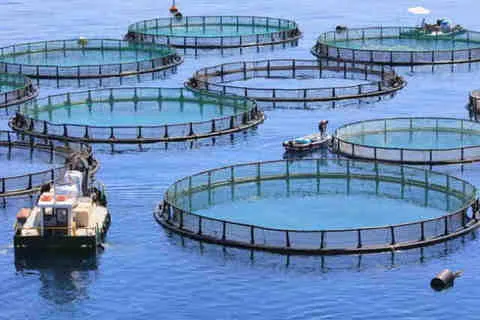
Hidden Dangers of Eating Tilapia: What You Need to Know
Consuming seafood is an excellent method to obtain vital nutrients and vitamins necessary for a balanced diet. In the United States, tilapia has emerged as the most favored farmed fish due to its budget-friendly cost. However, health specialists advise consumers to avoid tilapia as much as possible, cautioning against its potential health risks.

Tilapia contains only a limited amount of beneficial nutrients: Researchers from Wake Forest University School of Medicine have released a report detailing the omega-3 fatty acid levels found in commonly consumed fish. In their findings, tilapia ranked significantly lower in omega-3 content compared to many other types of fish. The health benefits of fish are largely attributed to omega-3 fatty acids, which are known to support cognitive health and potentially reduce the risk of Alzheimer’s disease. However, tilapia is packed with omega-6 fatty acids, which are considered detrimental to health. In fact, the quantity of omega-6 present in tilapia surpasses that found in foods like hamburgers or bacon.
Tilapia could cause Alzheimer’s disease: One of the omega-6 fatty acids present in tilapia is arachidonic acid. This compound significantly enhances the type of inflammatory damage commonly associated with Alzheimer’s disease. Consequently, consuming healthier fish options, such as mackerel, halibut, and sardines, may lower the risk of developing Alzheimer’s disease. These alternatives tend to mitigate the risk, rather than increase it.

Most tilapia are high: Tilapia ranks as the second most commonly cultivated fish globally, primarily because of its remarkable resilience. The fish’s ability to consume almost anything makes it highly appealing to farmers but poses concerns for consumers. This adaptability means that farmers can cut costs significantly on feed, unlike the expensive fish food required for salmon aquaculture. Typically, farmers provide tilapia with a diet consisting of po and OOP fish. Moreover, tilapia are often treated with antibiotics and genetically engineered to accelerate their growth rate.

Tilapia and Cancer Risks: Tilapia has the potential to contain significantly higher levels of carcinogens compared to other types of fish, with some studies indicating that it can carry up to ten times more. This is largely due to the farming practices employed, where fish are often fed with substances that include pesticides, various harmful chemicals, and industrial pollutants. Research into the toxic substances found in tilapia has identified dioxin as a major concern, a chemical that is strongly associated with the initiation and advancement of cancerous conditions.

Furthermore, your body takes a significant amount of time, approximately 7 to 11 years, to naturally eliminate dioxins. It’s important to spread this information among your friends on Facebook, especially those who frequently consume tilapia!





